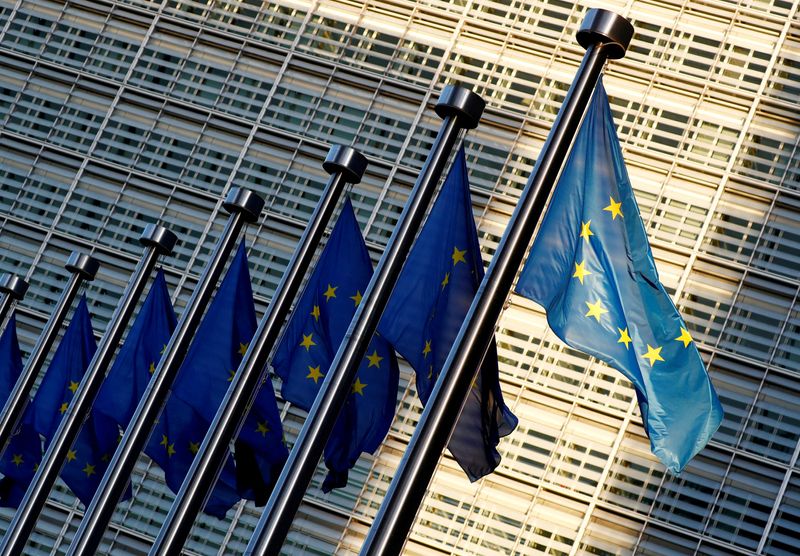BRUSSELS (Reuters) - Euro zone economic growth slowed sharply quarter-on-quarter as expected in the last three months of 2021, data confirmed on Tuesday, as activity was hit by another wave of COVID-19 infections and surging prices that cut into disposable incomes.
The European Union's statistics office Eurostat confirmed its earlier estimate that gross domestic product in the 19 countries sharing the euro rose 0.3% quarter-on-quarter in the October-December period for a 4.6% year-on-year increase.
At the same time euro zone employment rose 0.5% quarter-on-quarter for 2.1% year-on-year rise, as expected by economists polled by Reuters.
Eurostat data also showed that a jump in energy prices hit the euro zone's trade balance hard pushing it into a seasonally unadjusted trade deficit of 4.6 billion euros in December from a surplus o 28.3 billion a year earlier as exports rose 14.1% while imports surged 36.7%.
Adjusted for seasonal swings, the euro zone trade deficit was even larger at 9.7 billion euros in December, up from a 1.8 billion gap in November and surpluses throughout the rest of 2021.

The more expensive energy boosted the European Union's energy trade deficit to a whopping 276.7 billion euros in 2021, up from 157.2 billion in 2020.
Europe's trade gap with its biggest energy supplier Russia more than quadrupled to 69.2 billion euros last year from 15.7 billion in 2020. The trade deficit with Norway, also a major EU energy supplier, swing to a 18 billion deficit from a 6.1 billion surplus in 2020.